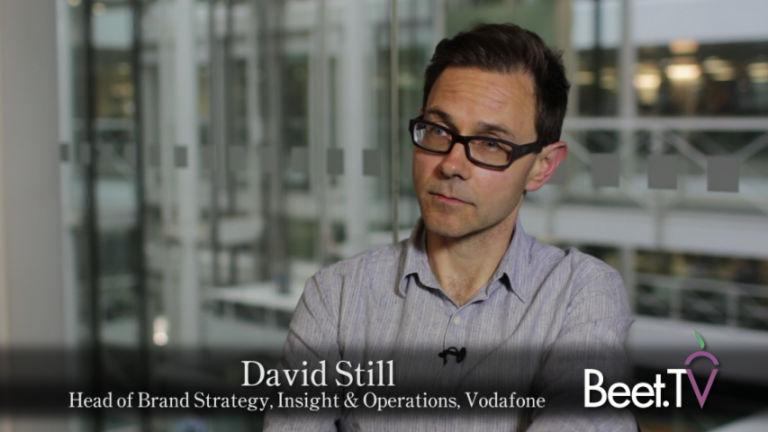
LONDON — Many marketers have heard the phrase: “Half the money I spend on advertising is wasted; the trouble is I don’t know which half.” But Vodafone is trying to find the answer and eliminate the waste, using an exploratory attitude and with an ad-tech vendor in-tow.
In this video interview, Vodafone head of brand strategy, insight and operations David Still tells Beet.TV the UK mobile telco has been deploying “a very new and very different approach to understanding our media ROI” – testing.
“We have been conducting an enormous amount of test-and-learn experiments to better understand how each of our media channels work in isolation and combination, and to determine exactly what they deliver back to the business,” he says.
Vodafone worked with DataXu, which recently received a $10 million investment from UK leading pay-TV platform Sky, to comb through its data, delivering thousands of experimental media buys in different UK regions, helping it understand the effect of marketing spend, by channel, at a regional level.
Still says it “optimized our media channel mix”, meaning it “returned millions of pounds back to the business without impacting our sales”, allowing Vodafone to “spend the same money in different ways and deliver sales increases from advertising”.
Specifically, Vodafone claims to have boosted efficiency by 10% using DataXu‘s Market Pulse suite.
Still says more marketers should approach a scientific, testing approach to media buying – and measuring its effect, though he acknowledges not every brand will find it easy.
“It can be very hard to get set up, it’s very labor-intensive,” he says. “It puts more complexity back in. You go through short-term pain for long-term gain.”
Still’s advice: “Get stakeholders on board early on. Start with a small test to demonstrate the potential of test-and-learn as an approach. Stick the course.”
This video was produced in London as part of our Addressable & Advanced TV Summit hosted by Sky Media and presented by FreeWheel and Invidi. Please visit this page for additional segments from the event.